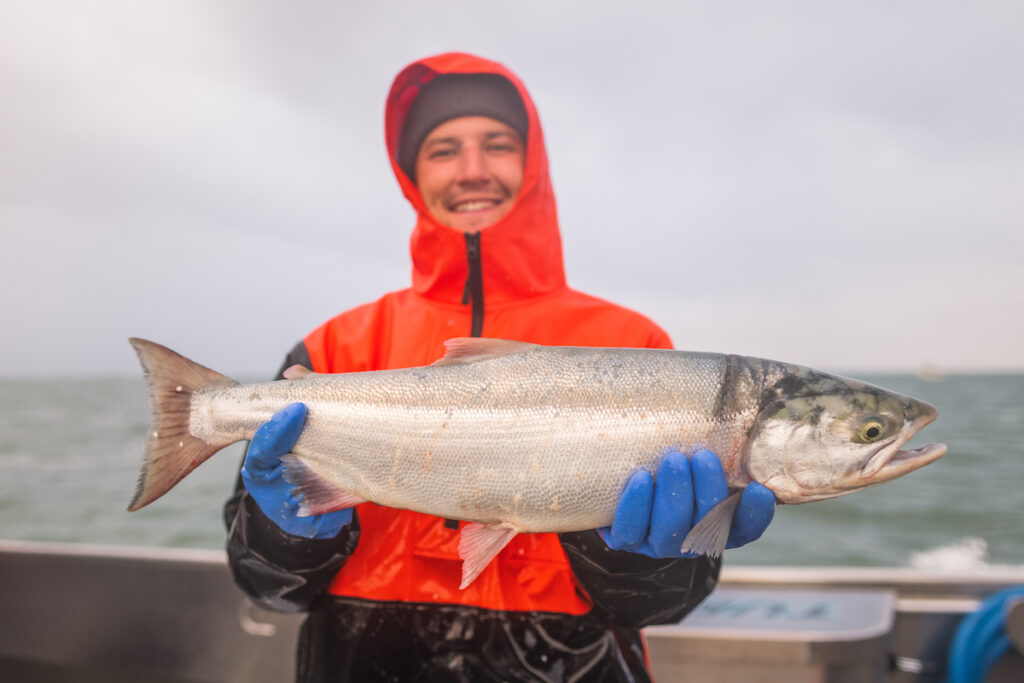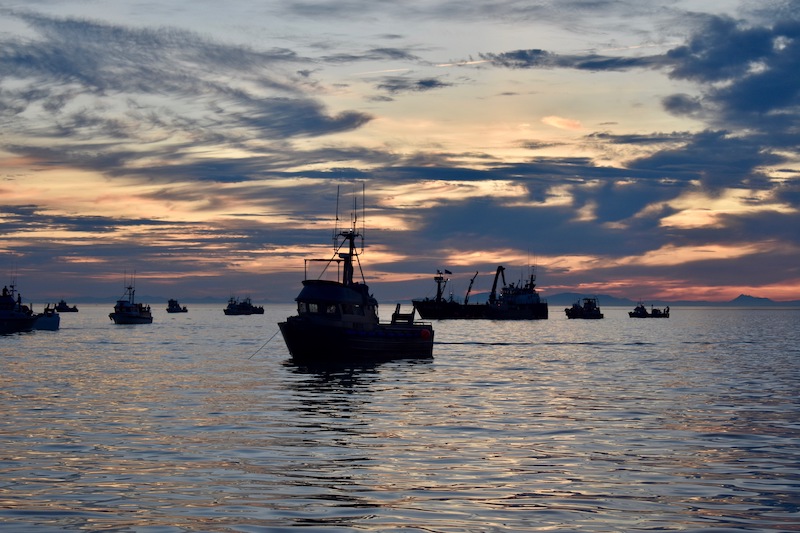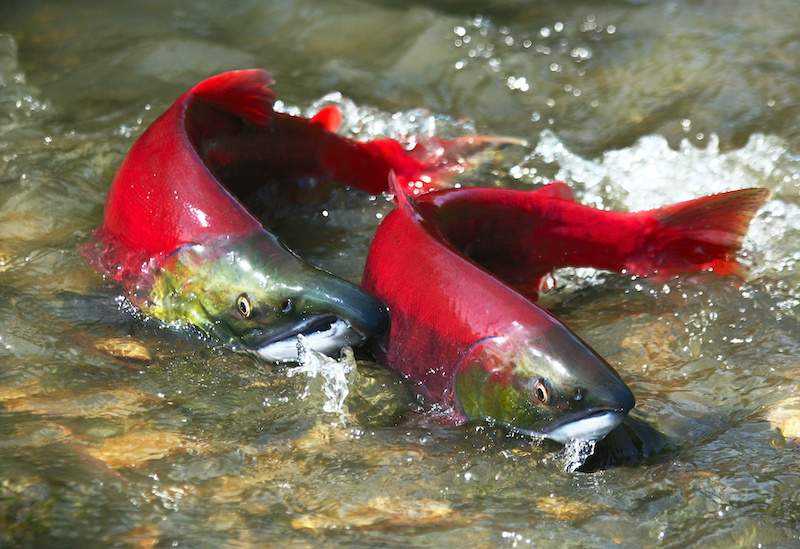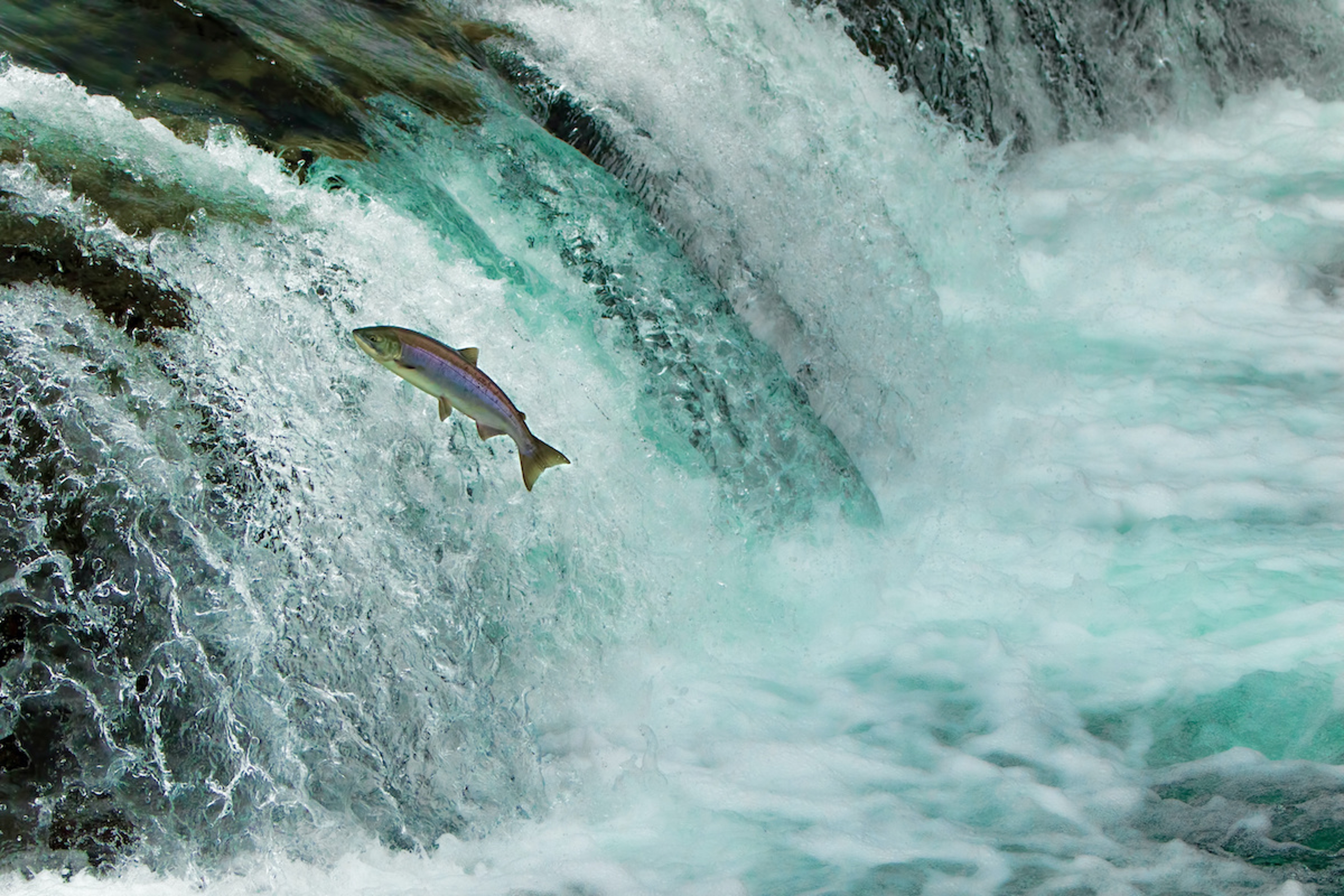Good News! Alaska Has a Record Salmon Run
Salmon lovers and fishermen are celebrating record-breaking numbers of sockeye sustainably harvested.
Aug 22, 2022
Fortunately, environmental news isn't always dire. Here's some to celebrate. For the second year in a row, Alaska's Bristol Bay is seeing record-breaking numbers of sockeye salmon returning to their ancestral breeding grounds. The 2022 sockeye run in the bay tallied 69.7 million fish as of mid-July, topping the 2021 total at that time by about two million fish.
It's translated to bountiful harvests for fishermen in the bay, who are returning to port with their holds stocked to the brim with sockeye.
Alaska's Bristol Bay sits off the state's southwestern coast, nestled inside the arm of the Alaskan Peninsula. Its cold, clean waters see massive runs of salmon each year, as the fish return from the ocean to their home rivers to mate. It makes the bay a cherished location for Alaskan fishermen, who flock each year to ply their trade.

The streams and rivers that feed into the bay also support a thriving tradition of sustenance fishing among indigenous people and other Alaskans.
While the bay typically sees runs numbering in the tens of millions, 2022 has proven to be an outlier. With nearly 70 million fish counted by July, the run is on track to earn a place in the history books, according to reporting by Alaska Public Media. A single day in Nushagak, one of five commercial fishing districts in the bay, saw two million sockeye hauled aboard in one day of fishing alone.
Estimates from the Alaska Department of Fish and Game indicate the run could see as many as 90 million sockeye salmon, all told. But even the forecast average of 75 million fish is 44 percent larger than the 10-year average, and more than 100 percent greater than the long-term average of sockeye counts.
Salmon lovers, rejoice
The bounty of salmon is good news for fishermen and salmon-lovers alike. Under Alaska's strictly managed fisheries plan, the run is creating what's called a harvestable surplus of 61 million sockeye. That number delineates how many sockeye fishermen are allowed to take from the sea each year, while allowing enough salmon through to breed and support healthy populations for years to come.

It's part of a larger tradition of sustainable management that's allowed Alaskan salmon runs to maintain their status as some of the environmentally healthiest wild fish populations in the world.
The principles of sustainable fishing are written into the state's Constitution, and state agencies partner with researchers yearly to monitor salmon populations and set quotas for capture. That, combined with historically pure waters, combines to make Alaskan fish and seafood populations some of the strongest in the world.
Alaskan salmon runs are historically strong, but what's behind this record-breaking season? Alaska Public Media reports that warmer waters, both inland and in the ocean, might be giving young sockeye salmon a boost by increasing the amount of prey available to them.

In fact, recent sockeye runs may be some of the largest ever seen, according to historical reconstructions by scientists studying the last several hundred years of Bristol Bay salmon history.
Find wild Alaskan sockeye salmon today
Record runs of wild Alaskan sockeye salmon aren't just good news for fishermen in Alaska. You can enjoy fresh frozen sockeye anytime, thanks to flash-freezing technology on boats that delivers exceptional quality and flavor.
Try skinless, boneless sockeye salmon cuts from Vital Choice for a classic seafood experience, or try pouched sockeye salmon for a great on-the-go snack or protein-powered lunch. Or explore fare from Alaska to the Patagonian coast with our Indulge in the Wild Sampler, featuring Seared Wild Sockeye Salmon Tataki, Wild Chilean Sea Bass, scallops, lobster tails, and more.







